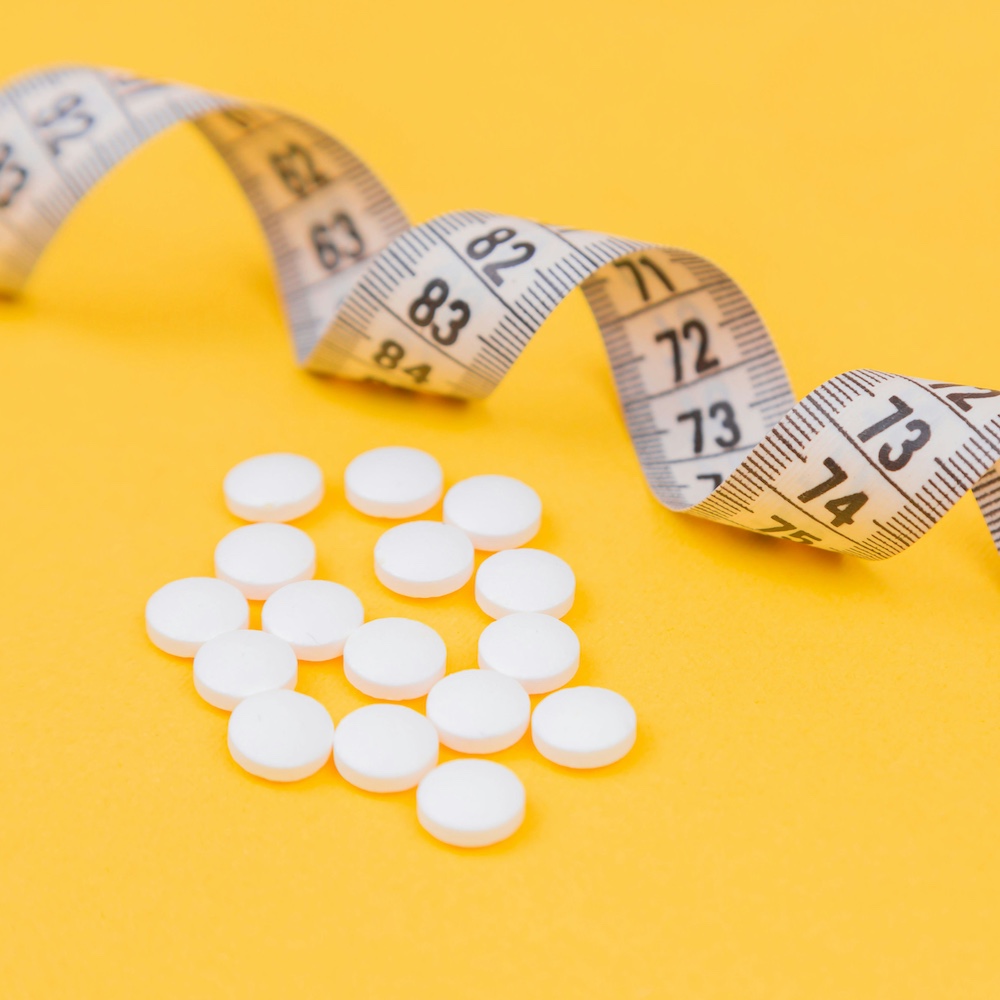BLOG
WEIGHT LOSS AND HORMONES
ONLINE CONSULTATION
If you need a more personal approach I’m just a phone call away.
Meet Sally!
In this video Sally will give you an introduction to the blog about weight loss and hormones.
Did you know …
- Hormones are important substances that serve as chemical messengers in your body
- They dictate nearly every bodily process, including metabolism, hunger, and fullness.
- Because of their association with appetite, some hormones play a significant role in body weight
- Hormonal dysregulation — when your body releases too little or too much of a hormone — can significantly impact body weight
- Some hormones stimulate hunger
- Other hormones signal satiety, ie. you’ve had enough to eat, and don’t want more.
- Hunger and satiety signalling are complicated processes that involve many systems in your body.
- Hormones responsible for hunger include ghrelin, motilin
- Hormones responsible satiety include insulin and leptin
- Hormone levels may be affected by many factors, including: food, sleep, activity levels, stress, fat percentage, muscle mass, medical diagnoses, age, etc.
- Hormones also influence the number of calories your body burns on a daily basis.
- For this reason, fluctuations in hormone levels may lead to weight gain or loss, and dictate where fat is stored.
- For example, the Thyroid secretes hormones that are responsible for increasing metabolism ie. burning of calories and the production of ATP / energy
- When the Thyroid gland is overactive, it releases too much Thyroid hormone and puts the body into a hypermetabolic state, where it burns more calories. This is known as hyperthyroidism.
- Conversely, an underactive Thyroid, characterized by low levels of Thyroid hormone, leads to fewer calories burned. This is known as hypothyroidism.
- This is why people with hyperthyroidism may lose weight, while those with hypothyroidism may gain weight.
- BUT remember nobody wants to lose weight we ONLY want to burn fat
- So knowing which hormones burn and which hormones store fat, then making the life style changes to support the fat burning hormones is the ultimate way to your perfect weight.
Meet Sally and get to know all weight loss and hormones
?
?
?
?
Meet the Hunger Hormones
- When your body needs food, a series of steps take place in the endocrine and nervous systems to stimulate food intake.
Ghrelin
- Ghrelin is known as “the hunger hormone.”
- Ghrelin is essentially the opposite of Leptin.
- It’s the hunger hormone that sends a message to your hypothalamus indicating that your stomach is empty and needs food.
- Its main function is to increase appetite
- Normally, Ghrelin levels are highest before eating and lowest after a meal
- Curiously, research indicates that people with obesity have low Ghrelin levels but are more sensitive to its effects.
- This sensitivity may lead to overeating
Tips to manage Ghrelin levels
- Don’t cut calories
- restricting calories often leads to increased Ghrelin levels, leaving you hungry.
- metabolism tends to slow down and Leptin levels decrease
- Maintain an optimal body weight
- Good quality sleep – poor sleep may lead to increases in ghrelin, overeating, and weight gain
- Only eat when you’re physically hungry
Motilin
- Motilin is a hormone produced in the small intestine.
- When you’re in a fasting state, motilin induces intestinal contractions that signal to the brain that you need food
Neuropeptide Y (NPY)
- NPY is a peptide hormone — released by the brain to stimulate food intake.
- NPY production and release is regulated by hormones, including Ghrelin and Leptin
- Neuropeptide Y (NPY) decreases the burning calories in response to fasting or stress
- Because it may stimulate food intake, NPY is associated with obesity and weight gain.
- NPY is activated in fat tissue, which may increase fat storage, lead to abdominal obesity and metabolic syndrome
- Research has shown that NPY’s mechanisms that lead to obesity may also cause an inflammatory response, further worsening health conditions
Tips for maintaining low NPY levels
- Exercise – studies suggest that regular exercise may help decrease NPY levels, though research is mixed
- High fat, high sugar diets may increase NPY levels
Agouti-related protein (AgRp)
- AgRp is another peptide hormone produced by the brain.
- Its production is stimulated by Ghrelin, and it works to increase food intake.
Meet the Satiety (fullness) Hormones
- The following are some of the main hormones that induce fullness and reduce food intake:
Cholecystokinin (CCK)
- CCK is a hormone released by cells of the small intestine in response to food, especially fat and protein.
- It reduces food intake by stimulating fullness centres in your brain
- It induces gallbladder contraction and pancreatic secretions that are necessary for digestion
- It’s important for energy production, protein synthesis, digestion, and other bodily functions.
- It also increases the release of the satiety hormone Leptin
- People with obesity may have a reduced sensitivity to CCK’s effects, which may lead to chronic overeating.
- In turn, this may further reduce CCK sensitivity, creating a negative feedback loop
Tips for increasing CCK levels
- Eat plenty of protein – research suggests a high protein diet may help increase CCK levels, and therefore fullness
- Exercise – there is some evidence supporting regular exercise for increasing CCK levels
Glucagon-like peptide-1 (GLP-1)
- GLP-1 is produced by gut cells in response to the ingestion of food.
- GLP-1 slows stomach emptying and interacts with the brain to reduce food intake and increase fullness
- It plays a major role in keeping blood sugar levels stable and making you feel full
- Research suggests that people with obesity may have problems with GLP-1 signalling
- As such, GLP-1 is added to medications — particularly for people with diabetes — to reduce body weight and waist circumference
Tips for keeping GLP-1 levels in check
- Eat plenty of protein – high protein foods have been shown to increase GLP-1 levels
- Consider taking probiotics – preliminary research suggests that probiotics may increase GLP-1 levels, though more human research is needed.
Pancreatic peptide YY (Peptide YY)
- Peptide YY is another hormone made in the small intestine.
- It’s released in response to eating food and binds to receptors in the brain, decreasing appetite.
- It also slows the movement of food through the digestive tract
- PYY levels may be lower in people with obesity, and this may lead to a greater appetite and overeating.
- Sufficient levels are believed to play a major role in reducing food intake and decreasing the risk of obesity
Tips for raising PYY levels
- Eating plenty of protein may promote healthy PYY levels and fullness.
- Additionally, the paleo diet — which includes ample protein, fruits, and veggies — may raise PYY levels, but more research is needed
- Exercise – may increase PYY levels
Leptin
- Leptin is a hormone secreted by fat cells.
- Leptin inhibits hunger-promoting peptides NPY and AgRp and stimulates fullness-promoting peptides, which leads to decreased appetite
- Leptin tells the area of your brain that regulates appetite — that you’re full
- People with obesity may experience leptin resistance, which means the message to stop eating doesn’t reach your brain, eventually causing you to overeat
- In turn, your body produces even more leptin, just like insulin resistance
- The direct cause of leptin resistance is unclear, but it may be due to inflammation, gene mutations, and/or excessive leptin production, which can occur with obesity
Tips to improve leptin levels
- Although no known treatment exists for leptin resistance, a few lifestyle changes may help lower leptin levels
- Maintain a healthy weight
- Decrease body fat levels
- Improve your sleep quality
- Exercise regularly
Insulin & Amylin
- Insulin
– interacts with the brain to reduce food intake
– the physiologic effect of insulin itself on the brain is to increase satiety
- Amylin
– is co-secreted with insulin from the pancreas in the ratio of approximately 100:1 insulin : amylin
– when Amylin is working properly, the body needs less insulin
– slow the rate of appearance of glucose in the blood after eating
– slows stomach emptying
– inhibits digestive juices, such as stomach acid, pancreatic enzymes, and bile ejection, resulting in a reduction in food intake.
– inhibits the secretion of glucagon
– may reduce food-related motivation behaviours by reducing the rewarding effects of food
Tips to improve Insulin levels
- see the article meet the fat storing hormones
Tips to improve Amylin levels
- Although there aren’t any ways to increase amylin naturally, there is evidence that suggests some compounds decrease amylin clumping, thus increasing the amount of free amylin in the blood, such as
– zinc
– Oleuropein, a component of olive oil
- Losing Weight – Obesity is associated with amylin resistance
Obestatin
- Obestatin is a hormone with an appetite-suppressing effect.
- It opposes Ghrelin’s hunger-inducing effects.
- However, scientists are still studying Obestatin, and more research into its effects on hunger and fullness is needed.
Meet the Fat Storing Hormones
Insulin
- Insulin, the main storage hormone in your body, is produced by your pancreas.
- It’s an anabolic hormone, storing glucose, fats and protein
- In healthy individuals, insulin promotes the storage of glucose — a simple sugar you get from food — in the muscle, liver, and fat cells for later use.
- Your body secretes insulin in small amounts throughout the day and in larger amounts after meals.
- This hormone then transfers glucose from food / blood into your cells for either energy production or storage, depending on the cell’s current needs.
- Insulin interacts with the brain to reduce food intake
- The physiologic effect of insulin itself on the brain is to increase satiety.
- If the central nervous system becomes resistant to the effects of insulin, then improving central nervous system insulin resistance may decrease appetite.
- Insulin resistance in cells is a fairly common condition that causes the cells to stop responding to Insulin.
- This condition results in high blood sugar because Insulin can’t move glucose into the cells
- The pancreas then produces even more Insulin in an attempt to boost glucose absorption
- Insulin resistance has been linked to obesity, which in turn can play a role in other conditions, such as type 2 diabetes and heart disease
- Insulin sensitivity can be thought of as the opposite of insulin resistance.
- It means your muscle cells are sensitive to insulin.
- Thus, it’s a good idea to focus on lifestyle habits that help improve Insulin sensitivity, such as the following.
Tips to improve insulin sensitivity
- Monitor blood sugar levels
– CGM or standard blood sugar monitors
– Blood sugar should be between 4 – 7 mmol/L or 72 – 126 mg/dL
– The higher the blood sugar the higher the Insulin
– Discover which foods and lifestyle increase your blood sugar and make the necessary changes
- Increase muscle tissue through H.I.R.T
– Muscles are exceedingly glucose hungry
- Improve your sleep habits.
– Not getting enough sleep, or not getting quality sleep, is linked to obesity and insulin resistance
– 7 – 8 hours from 21.30 / 22.00 as many nights as possible
– Support sleep with magnesium, melatonin, cannabis / CBD, mushrooms, like reishi, cordyceps,
- Increase omega-3 fatty acids
– Research indicates that omega-3 supplements may improve insulin sensitivity in people with metabolic conditions such as diabetes.
- Decrease omega 6 fatty acids
– Research suggests that omega-6 fatty acids may contribute to fat accumulation and insulin resistance
- Change your feeding window and meal times .
– 6 – 8 hours feeding windows
– Don’t eat after 6pm
- Eat carbs last
– Eat fats and proteins in a meal first, wait 10 minutes before eating the carbohydrate part of the meal
– Focus on lower glycaemic carbs or foods with lower carbs per gram weight
Cortisol
- Cortisol is known as the stress hormone and is produced by your adrenal glands.
- Cortisol is produced every second of the day to maintain / increase blood sugar levels
- During times of stress Cortisol production increases to lift blood sugar and thereby energy levels
- BTW – it doesn’t matter if the stress aka the need for more energy is physical, mental or emotional
- While it’s important for your body to release Cortisol in ‘dangerous’ situations, chronic high levels may lead to many health issues, including heart disease, diabetes, low energy levels, high blood pressure, sleep disturbances, and weight gain
- Certain lifestyle factors may contribute to high Cortisol levels including:
– poor sleep habits
– chronic stress
– high intake of high glycaemic foods
– obesity raises Cortisol levels, then high levels of Cortisol causes weight gain, creating a negative feedback loop
Tips for lowering cortisol levels
- Optimize sleep
– chronic sleep issues, including insomnia, sleep apnoea, and irregular sleep habits (like those of shift workers), will contribute to high cortisol levels.
– focus on developing a regular bedtime and sleep schedule
- Exercise regularly
– Cortisol levels temporarily increase after high intensity exercise, but regular exercise generally helps decrease levels by improving overall health and lowering stress levels
– Practice mindfulness
– Research suggests that regularly practicing mindfulness lowers cortisol levels
– Try adding meditation to your daily routine
- Maintain optimal body weight
– obesity may increase Cortisol levels and high Cortisol levels can cause weight gain
- Eat well
– Research has shown that diets high in added sugars, refined grains, and omega 6 fatty acids may lead to higher Cortisol levels.
Estrogen
- Estrogen is the family name of female sex hormones responsible for regulating the female reproductive system, as well as the immune, skeletal, nervous and vascular systems
- Levels of this hormone change during life stages, such as:
– Pregnancy
– Nursing
– Menopause
– As well as throughout the menstrual cycle
- Both high and low levels of the various Estrogens may lead to weight gain
- The Ovaries produce copious amounts of Estradiol during a woman’s fertile years
- Fat cells produce Estrone (which can convert to Estradiol), so the more fat cells you have the more Estrone you will produce
- The brain has receptors for Estrogen, and higher levels of Estrogen are associated with fullness and satisfaction after eating.
- Estrogen also suppresses hunger by decreasing levels of Ghrelin and increasing the effectiveness of Cholecystokinin, an appetite-suppressing hormone
- Estrogenic fat is typically a form of subcutaneous fat which develops under the influence of Estradiol and Estrone especially in women, though men can also develop Estrogenic fat, especially as a side effect of aging
- Estrogenic fat is commonly stored in breast tissue, butt and thighs
- Tummy fat differs sightly
– fluff / muffin top is created by Estradiol
– visceral fat is created by Estrone, which is the dominant Estrogen after menopause.
- High levels of Estrogen are often seen in people with obesity and can increase the risk of certain cancers and other chronic diseases
- Low levels — typically seen with aging, perimenopause, and menopause, will amongst other things affect fat storage levels and site
– Increased visceral tummy fat
– Possible loss in breast tissue
- Low Estrogen levels effects other hormones
– Cortisol creating an increased sensitivity to stress
– Insulin creating and increased risk of insulin resistance
- Low Estrogen can lead to other health problems, such as high blood sugar, high blood pressure, and heart disease
Tips to maintain healthy Estrogen levels
- ERT, TRT – talk with an expert
- Maintain optimal weight
- Foods that may increase Estrogen
– Isoflavones from the legume, pea and bean family
– Soybean, green bean, mung bean, chickpeas, alfalfa, peanut
– Also found in smaller quantities in animal foods like meat, eggs, dairy, seafood
- Get adequate, uninterrupted sleep each night – sex hormone production is highest at night.
- Manage your stress – excess Cortisol can decrease the production of Estrogen
- Exercise is important – may increase Testosterone which can increase Estrogen
- Limit your alcohol intake – excess alcohol will increase the production of liver Estrogens.
Meet the Fat Burning Hormones
Thyroid
- Thyroid hormones regulates metabolism, maintaining basal metabolic rate / BMR
- Low Thyroid hormone levels are associated with low BMRs and low fat burning
- High Thyroid hormone levels are associated with high BMRs and high fat burning
- Appetite, the absorption of foods, and gut motility are all influenced by Thyroid hormones.
- They increase glucose absorption in the gut, gluconeogenesis, glycolysis and glucose uptake by cells
- They stimulate the breakdown of fats, and increase the number of free fatty acids, which can increase fat burning.
- They increases various gene expression leading to increased oxygen consumption, respiration rate, and body temperature.
- They affect other hormones like Estrogen and Progesterone and Cortisol mostly due to liver clearance issues
Tips to maintain healthy Thyroid levels
- Don’t go on low calorie diets
- Avoid foods that cause inflammation, such as soy, corn, gluten, and dairy products
- Increase iodine levels through foods such as seafood, seaweed, tuna and cod, also found in dairy products, cereals, and breads, but be careful of these as they contain possible inflammatory molecules
- Avoid toxins found in groundwater, nonorganic foods, mercury laden fish, oral fillings, pesticides, plastics, personal products, etc.
- Ensure optimal levels of – selenium, zinc, iodine, and tyrosine which are necessary for the production of Thyroid hormones
- Get adequate sleep
- Move minimum 30 minutes every day
- Consume enough water – drinking 2 glasses of water increases the metabolic rate up to 25% for nearly 2 hours after drinking it
- De-stress – stress reduction techniques like meditation, deep breathing, and yoga can help improve Thyroid functions by reducing Cortisol which can have a negative effect on the Thyroid
Noradrenaline and Adrenaline
- These hormones are called the catecholamines.
- They immediately provide glucose for your body by breaking down stored glycogen and stored fat, releasing it to your muscles, so that you can either fight or run away
- These same responses will occur when you begin to ramp up the intensity of exercise.
- During intense exercise, catecholamines are released
- The higher levels of catecholamines in the body enhance the overall rate of fat loss by stimulating the release of fatty acids from fat cells into the bloodstream for burning as fuel
Tips to maintain healthy catecholamine levels
- High intensity exercise, such as sprinting
- Focus on strength
- Start Jumping
- Keep your workouts under 25-minutes for best results
- Foods that can increase catecholamine levels include:
– Coffee
– Tea
– Bananas
– Chocolate
– Cocoa
– Citrus fruits
– Vanilla
- Enhancing Supplements include
– Tyrosine – L-tyrosine, is the precursor of noradrenalin and dopamine
– Phenylalanine, which is precursor to tyrosine
– Arctic Root – Rhodiola
– Velvet Bean – Mucuna Pruriens
– Asian Ginseng – Panax or Red Ginseng
– Nicotine
Glucagon
- Is produced in the pancreas
- It raises the levels of glucose and free fatty acids in the bloodstream
- It causes the liver to convert stored glycogen into glucose, which is released into the bloodstream.
- It promotes fat acid breakdown in the liver and fat cells and decreases its production
- Is considered to be the main catabolic hormone of the body.
- Its effect is opposite to that of insulin, which lowers extracellular glucose
- Secretion of glucagon is stimulated by:
– Hypoglycaemia
– Adrenaline
– Arginine
– Alanine
– Acetylcholine
– Cholecystokinin
– Gastric inhibitory polypeptide
- Secretion of glucagon is inhibited by:
– Increased free fatty acids and keto acids into the blood
– Increased urea production
– Insulin
– Glucagon-like peptide-1
– Somatostatin
– Amylin
– PPARy
Tips to maintain healthy Glucagon levels
- De-stress
- High protein and low carb diets can increase fasting glucagon levels by 35%
Adiponectin
- Isn’t so well known
- Released from fat cells
- Regulates glucose levels and fatty acid breakdown
- Increases insulin sensitivity, improves glucose tolerance and inhibits inflammation
- The higher your adiponectin levels, the higher your energy and caloric expenditure and the lower the risk for Type 2 Diabetes
- Adiponectin and Leptin can act synergistically
Tips to maintain healthy Adiponectin levels
- Maintaining optimal weight – Obesity is associated with decreased adiponectin
- Eating sweet potatoes may increase levels of adiponectin
Testosterone
- Is key for muscle building
- Impossible to build muscle mass without enough of it – for both men and women
- Muscle mass is key to fat burning and metabolic stability
- Muscles are extremely glucose hungry and thereby utilize blood glucose reducing Insulin needs
Tips to maintain healthy Testosterone levels
- TRT if necessary – talk to a professional
- Maintain optimal zinc levels to reduce conversion to Estrogen
- Optimal sleep – Testosterone is produced at night
- Focus on strength exercises
- Reduce stress and Cortisol
- Get optimal levels of Vitamin D through sunlight or supplementation
- Avoid Estrogen foods like soybeans and other pulses
- Moderate your alcohol intake
Growth Hormone – GH
- Produced by the Pituitary gland.
- GH also supports metabolism and improves muscle growth, strength, and lean body mass
- GH breaks down triglycerides to individual free fatty acids
- Reduces and redistributes body fat
- Obesity is characterized by reduced GH output
- GH effects metabolism, by antagonising the action of insulin on peripheral tissues, suppressing glucose uptake and stimulating glucose production.
- GH reduces visceral fat
Tips to maintain healthy HGH levels
- Reduce belly fat
- Intermittent fasting
- Some studies have found that arginine supplements may influence growth hormone production
- Reduce your sugar intake – as high levels can decrease HG production
- Aerobic exercise may be better for GH production than strength exercises
- GABA supplementation may increase GH
- Optimize sleep quality to support HGH production – aim for at least 7 hours of quality sleep per night
- Melatonin supplements can enhance sleep, which may increase your body’s natural HGH production.
Insulin-like Growth Factor-1 – IGF-1
- Stimulated by the release of GH
- Secreted by the liver
- Similar in molecular structure to insulin
- Taps into stored fat (and glycogen) to create energy in the body.
Tips to maintain healthy IGF-1 levels
- Intense and strenuous HIIT workouts cause a significant increase in circulating levels of IGF-1
- Resistance training aka strength training or weight training significantly increases IGF-1
- Higher protein intake can increases IGF-1
- Maintain Thyroid function – Hyperthyroidism can increase IGF-1.
WANT MORE?
CHECK OUT THE OTHER BLOGS ABOUT WEIGHT LOSS
ONLINE CONSULTATION
If you need a more personal approach I’m just a phone call away.
Questions? Please don't hesitate to contact me








